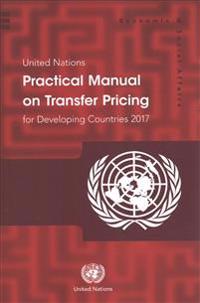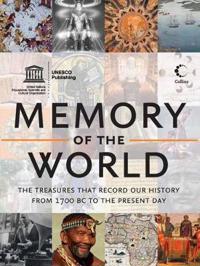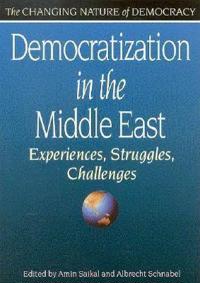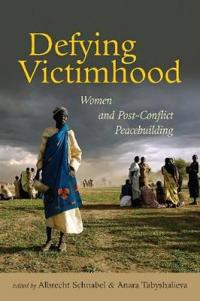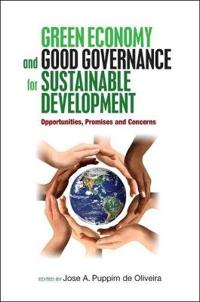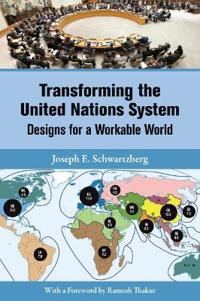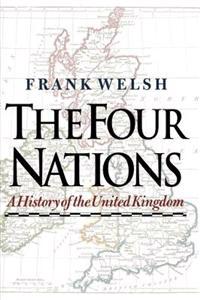United Nations Practical Manual on Transfer Pricing for Developing Countries 2017
ISBN: 9789211591125 - UTGIVEN: 2017-10The United Nations Practical Manual on Transfer Pricing for Developing Countries (2017) is a response to the need, often expressed by developing countries, for clearer guidance on the policy and administrative aspects of applying transfer pricing (profit shifting) analysis to some of the transaction[...]
Charter of the United Nations and Statute of the International Court of Justice
ISBN: 9789216000356 - UTGIVEN: 2015-09The Charter of the United Nations was signed in 1945 by 51 countries representing all continents, paving the way for the creation of the United Nations on 24 October 1945. The Statute of the International Court of Justice forms part of the Charter. The aim of the Charter is to save humanity from war[...]
Memory of the World: The Treasures That Record Our History from 1700 BC to the Present Day (Häftad)
avUnited Nations Educational Scientific &
ISBN: 9789231042379 - UTGIVEN: 2012-10Democratization in the Middle East (Häftad)
avAmin Saikal, United Nations University, Albrecht Schnabel
ISBN: 9789280810851 - UTGIVEN: 200302Democratization in the Middle East addresses a number of key issues determining the success or failure of sustainable democratization in the region. With the exception of Israel, the constituent states cannot yet guarantee a path toward sustainable democracy. If anything, movement toward political, [...]
Defying Victimhood (Häftad)
avUnited Nations University
ISBN: 9789280812015 - UTGIVEN: 201209Women are among the most competent, yet marginalized, unnoticed and underutilized actors in efforts to rebuild war-torn societies. Opportunities for sustainable peacebuilding are lost - and sustainable peace is at risk - when significant stakeholders in a society's future peace and conflict architec[...]
Green Economy and Good Governance for Sustainable Development (Häftad)
avUnited Nations University
ISBN: 9789280812169 - UTGIVEN: 201208Much of the debate on green growth and environmental governance tends to be general in nature and is often conceptual or limited to single disciplines. Even though recent discussions on these topics have benefited from the accumulation of empirical and theoretical knowledge over the last few decades[...]
The Imperative of Good Local Governance (Häftad)
avUnited Nations University
ISBN: 9789280812299 - UTGIVEN: 2013-11The Imperative of Good Local Governance is a true state-of-the-art volume in the field of local governance, decentralisation and local democracy summarising a substantial part of the insights from original research in the last decade. It is also a future-looking volume with explicit policy relevance[...]
Transforming the United Nations System (Häftad)
ISBN: 9789280812305 - UTGIVEN: 2013-12Global problems require global solutions. However, the United Nations, as presently constituted, is incapable of addressing many global problems effectively. One nation-one vote decision-making in most UN agencies fails to reflect the distribution of power in the world at large, while the allocation[...]
Transition Management for Sustainable Development (Häftad)
avUnited Nations University
ISBN: 9789280812343 - UTGIVEN: 2014-03The idea of sustainable development is often referred to in the public forum, however this does not necessarily mean that it is also widely accepted as a living philosophy, nor that it has come to be embodied in public policy. Consequently, there is a need to precisely examine the problems brought a[...]
Medical Sociology on the Move (Inbunden)
avAmin Saikal, United Nations University, Albrecht Schnabel
ISBN: 9789400761926 - UTGIVEN: 201304This book provides readers with a single source reviewing and updating sociological theory in medical or health sociology. The book not only addresses the major theoretical approaches in the field today, it also identifies the future directions these theories are likely to take in explaining the soc[...]
United Nations convention on the rights of persons with disabilities (Häftad)
avJukka Kumpuvuori, Martin Scheinin
ISBN: 9789526706863 - UTGIVEN: 2010-01Jukka Kumpuvuori and Martin Scheinin (eds.) 'United Nations Convention on the Rights of Persons with Disabilities - Multidisciplinary Perspectives' traces the entry into force of the United Nations Convention on the Rights of Persons with Disabilities. The book offers a number of fresh approaches to[...]
The Four Nations: A History of the United Kingdom (häftad)
ISBN: 9780300093742 - UTGIVEN: 2011-04Even by comparison to the United States, the United Kingdom has had a brief and fractious history. Its existence as an undivided entity lasted only for a disputatious 125 years, and its future remains precarious.In The Four Nations, Frank Welsh offers a lively narrative history of the four component[...]
Warrior Nations: The United States and Indian Peoples (Häftad)
ISBN: 9780806143828 - UTGIVEN: 2013-10During the century following George Washington's presidency, the United States fought at least forty wars with various Indian tribes, averaging one conflict every two and a half years. "Warrior Nations "is Roger L. Nichols's response to the question, "Why did so much fighting take place?" Examining [...]

